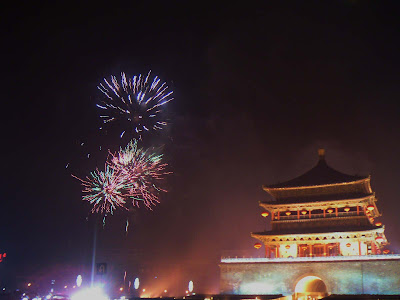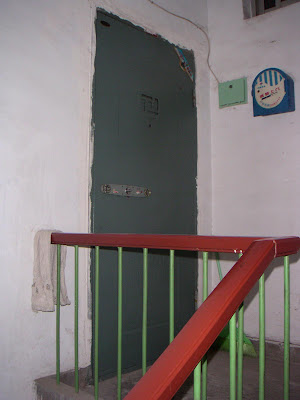There are things that I've come to understand about China. People will never believe that I like spicy food. People will respond to my spoken Chinese with mime. Mashed potato will always be served cold, surrounded by a moat of milk, with coloured sprinkles on top. I accept these things and try not to let them get me down.
But there are other things, things that I don't think I'll ever understand. I've already written about one such example, when landlords actually raise the rent after apartments have been sitting empty for months, to recoup the money they've already lost. This seems an unusual business decision to me. But there's another one, a more obvious and highly visual one, that I'm sure many others have noticed...
If you need to buy some flowers in Xi'an, where do you go? Flower street, of course. What about a neon sign for the front of your shop? Head on down to neon sign street. Desperately need some goldfish? Simply take a bus down to goldfish street and ye shall be rewarded. I can't help but wonder.... is it really a good idea for stores that sell identical items to be located right next door to each other in a single long strip? Often, they have exactly the same prices too. Where is the competition? How can that be a good business idea? I've heard that if a couple of similar shops, nearby to each other, seem to have a good business, then that just encourages many others to open identical shops next door.

A sign-making shop, next to a sign-making shop, next to a...
Doesn't this just dilute how much money is being brought into the available stores in that particular identi-shop strip? Once the saturation point has been reached there simply won't be enough business/money to spread around... right? Whatever happened to finding a gap in the market? Wouldn't it make more sense to find out where there are NO florists, and open one there? Well, not in China.

Six florists in this photo, but there are plenty of others nearby
The thing is, this Chinese system doesn't seem to work.... so why does it persist?
Luck.
It's all about how lucky you are. If business is poor, the store makes a loss and has to close, then what is the cause? Location? Lack of advertising? Wrong product or pricing? Nope - the guy just wasn't lucky enough. So, sure enough, another one will open in its place a few weeks later, opened by someone that believe they will be luckier than the last one. And so the cycle continues.
There seems to be a general belief that the path to riches goes something like this:
1. Open a shop (preferably selling little crappy things that nobody really wants, which are really cheap, and can only possibly yield a profit of 1 RMB.)
2. Plan is complete - you are rich.
There are no possible alternatives or deviations from this plan. At least, not in the minds of the myriad shop owners, and potential shop owners, of Xi'an. Did you have any idea that is was so simple? Let's all go and open stores in a shopping mall right now! Oh wait, you probably shouldn't bother, since they're all empty caverns...





























